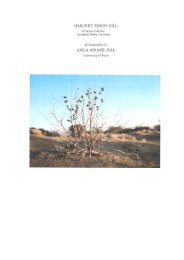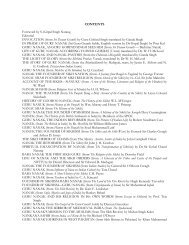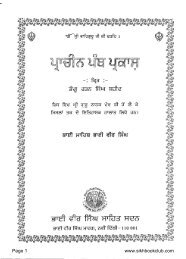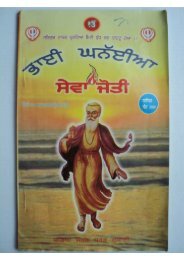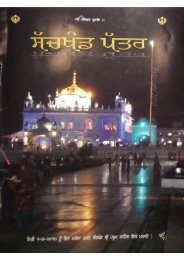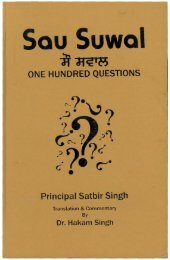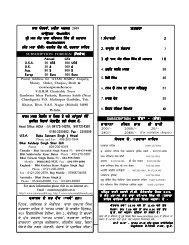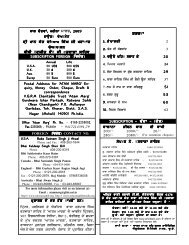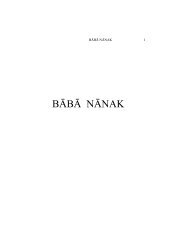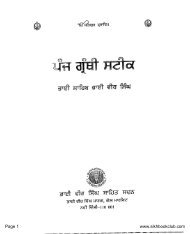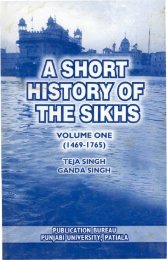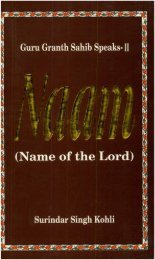Create successful ePaper yourself
Turn your PDF publications into a flip-book with our unique Google optimized e-Paper software.
perceptive man, grasping as it were, the subtlest nuances of<br />
things as they happened. In short, he is a remarkable kind of<br />
a poet and a historian. In an utterly terse and tell-tale manner,<br />
he tells us all what happened after the death of Sarkar as Ranjit<br />
Singh was lovingly called by his subjects. The events happened<br />
with such rapidity that none other than an extremely gifted poet<br />
could have grasped them all. A curse of sorts seems to have<br />
operated in the Punjab, leading each one of the grandees to their<br />
doom, leaving the Lahore Darbar almost wholly orphaned in a<br />
matter of half a dozen years. There is a sense of divine wrath<br />
and dramatic irony in the enveloping tragedy. That the level of<br />
the poet's sensibility could have risen in the same proportion<br />
is something that cannot be overlooked. Without some such<br />
process occurring, such a good, historically valid and evocative<br />
poem could not have been written.<br />
It is almost a filmic, yet truthful and sensitive account that<br />
unfolds reel after reel in the form of a documentary which can<br />
be remembered and sung with great effect before different<br />
audiences by the itinerant singers of Punjab called dhadies. Our<br />
poet is a man of great empathy and is able to bring on record<br />
what no ordinary poet would have grasped, much less recorded.<br />
Above all, he is so much of a Punjabi patriot that he is not<br />
influenced by how the new rulers would react to his description.<br />
. Another important fact which also needs to be mentioned<br />
right at the outset is that while Shah Mohammed is a high-born<br />
Muslim, Ranjit Singh hailed from the peasant stock and became<br />
the ruler ofPunjab after welding numerous principalities together<br />
into a kingdom, only about half a century earlier. And this<br />
happened after eight long centuries of Islamic rule in India. But<br />
then Shah Mohammed is wholly secular, with not a trace of<br />
communal thinking in his mind. He blames only those who need<br />
to be blamed and praises where praise is due, without any<br />
distinction of caste and creed. In short, he is a picture of what<br />
an Indian Muslim should be in order to weld India into a strong,<br />
homogeneous society.<br />
He is particularly relevant to the trifurcated Punjabi society<br />
(20)



